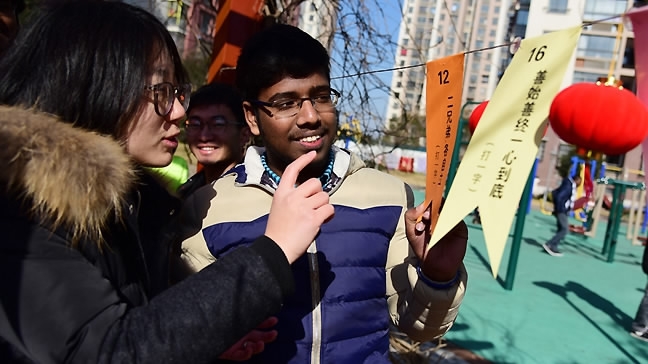“We feel safe unlike Chinese citizens in India”: Indian diaspora in China
“You will not feel alienated or insecure if you live there. Media here might have been criticised for other reasons but they have not been aggressive in their portrayal of India. We are aware that there have been tensions on the border for almost a year now but there is no hatred for the Indian community,” says Jaipur-based Ghanshyam Yadav who is studying medicine at the University of South China at Hengyang and has been living in China since 2018.
Anayat Ali, another Indian student studying in China, totally agrees with Yadav. “Initially, we were scared and our families were also scared for us as we live here on our own but fortunately, we did not face any kind of discrimination or harassment by the Chinese. Honestly, I was worried at first, but my fear vanished as classes continued and nobody’s behaviour changed towards me at the university,” says Delhi-based Ali who is pursuing PhD in Civil Engineering from Shanghai’s Tongji University.
Indian diaspora in China
Both Ali and Yadav are members of 23,000-strong Indian student diaspora living in China, as of 2019, according to the estimates of China’s ministry of education’s ‘Statistical report on international students in China for 2018’. Indians in China make up a significant chunk of total number of international students studying in the Chinese higher education ecosystem, behind only South Korea, Thailand, and Pakistan.
Ties between India and Chna have been plumbing new lows since the past few years. When cross-border conflicts occurred after rising tensions between the two armies, mainstream Indian media immediately launched a hate mongering campaign against China. In retaliation to the Chinese aggression in Ladakh, the Indian government banned dozens of Chinese apps, and several groups aligned to the ruling Bharatiya Janata Party began an anti-China campaign and urged people to not buy any China-made product and some groups began attacking Chinese citizens in India, especially students and news was filled with reports of racial discrimination and violence against the Chinese diaspora in India. This trend picked up momentum when the Covid-19 pandemic broke Wuhan and from there spread across the world.
The Chinese experience
However, the experience of Indian diaspora students in China has been completely different from that. They say that despite the unfortunate and hate crimes against the Chinese in India, they did not face any discrimination or differential treatment.
“We were scared at first but common people have been sensible and sensitive. We did not face any harassment here, unlike the Chinese citizen staying or visiting India. People here have been warm and welcoming to us,” says Yadav from Jaipur.
Yadav goes on to say that China has been a favourite destination among Indian students since the past few years, especially for studying medicine.
China as a higher education destination
According to Madhurima Nundy, an Associate Fellow at the Institute of Chinese Studies in Delhi, the trend of Indians going to China started taking shape from 2004, when China opened its doors for foreign students to study medicine. “It was a good option for those not qualifying the public medical college exams in India and for those who were unable to pay the exorbitant fees of the private medical colleges. The costs of studying in China are much cheaper than studying in private medical colleges in India and many other countries,” she adds.
But Chinese higher education is not all about medicine. A small number of Indian students also take up language studies and engineering courses and these numbers can be expected to rise in the coming years, according to Nundy.
Pursuing his engineering studies at Shanghai’s Tongji University, Ali can be considered as an exception. He cites the high standing of Chinese universities in global rankings as one of his reasons to choose China.
“The IITs are the top technology institutes in India, but if we compare them globally, they are not there among the top universities. And to get admission to an IIT is a big deal. Because a lot of students apply and they have only a few seats. So it’s a lot tougher to get admission there, but it is much easier in China,” he says, praising Chinese universities for the quality of the infrastructure, the faculty and safety.
For him too, like Yadav, the experience in China has been nothing short of incredible. “The teachers are amazing. My cohort is amazing. Just being there at the university is highly inspiring. It really pushes you. Generally, the thrust they have on good academics, good research, a holistic life for a student is incredible.”










